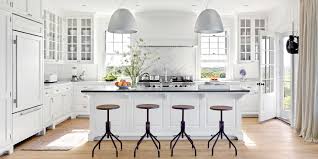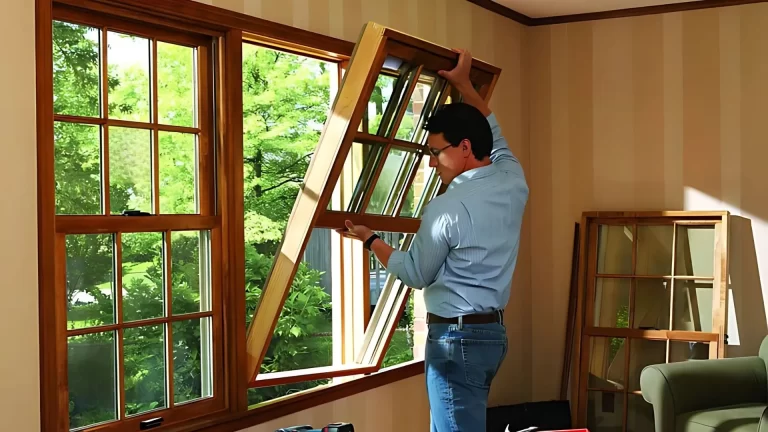
Kitchen
In today’s fast-paced world, home automation is rapidly becoming a norm rather than a luxury. From smart thermostats to automated lighting systems, the aim is to enhance convenience, security, and energy efficiency. One innovation that is gaining significant traction is self-closing windows. These windows not only offer convenience but also add a layer of safety and energy efficiency to your home. If you’re considering an upgrade, this comprehensive guide will take you through everything you need to know about self closing concession window.
1. Sensor-Activated Windows
These windows utilize sensors to detect environmental changes like rain, wind, or temperature drops. When the sensors are triggered, the windows close automatically to protect the home’s interior and maintain optimal living conditions.
2. Timer-Controlled Windows
Timer-controlled windows can be set to open and close at specific times of the day. This feature is particularly useful for managing ventilation and maintaining indoor air quality without constant manual adjustments.
3. Remote-Controlled Windows
These windows offer the convenience of being operated remotely via a smartphone app or a remote control device. Whether you’re at home or away, you can control your windows at the touch of a button.
Benefits of Self-Closing Windows
1. Enhanced Security
One of the standout benefits of self-closing windows is the added layer of security they provide. Should you forget to close your windows before leaving the house, the automated system ensures they are closed, thus reducing the risk of break-ins.
2. Energy Efficiency
By automatically closing windows in response to weather changes, self-closing windows help to maintain the internal temperature of your home. This means your heating and cooling systems don’t have to work as hard, potentially reducing your energy bills.
3. Convenience
Imagine not having to rush to close your windows when it starts raining, or not worrying about leaving windows open when you go out. Self-closing windows take care of these tasks for you, offering unparalleled convenience.
4. Improved Air Quality
By programming your windows to open at specific times, you can ensure that your home receives regular ventilation without compromising security. This helps to maintain a healthy indoor environment.
Installation and Maintenance
1. Professional Installation
While some DIY enthusiasts may be tempted to install self-closing windows themselves, professional installation is highly recommended. This ensures that the windows are correctly installed and integrated with your home’s electrical and automation systems.
2. Regular Maintenance
Like any other home automation system, self-closing windows require regular maintenance to function optimally. This includes routine checks on sensors, motors, and the overall window structure to ensure everything is in good working condition.
Choosing the Right Self-Closing Windows
When selecting self-closing windows for your home, several factors need to be considered:
1. Material
Self-closing windows are available in various materials, including wood, vinyl, and aluminum. Each material offers its own set of advantages and aesthetic appeal, so choose one that aligns with your home’s design and your personal preferences.
2. Features
Different models offer different features. Some may include integrated blinds, UV protection, or additional security features such as locks and alarms. Identify what features are most important to you and choose accordingly.
3. Budget
Self-closing windows come at various price points. While it may be tempting to opt for the cheapest option, it’s essential to balance cost with quality. Investing in a high-quality product can save you money in the long run by reducing energy bills and minimizing maintenance costs.
Integrating Self-Closing Windows with Smart Home Systems
For the tech-savvy homeowner, integrating self-closing windows with existing smart home systems can offer even greater convenience and functionality. Here’s how you can do it:
1. Compatibility
Ensure that the self-closing windows you choose are compatible with your current smart home system. Most modern systems like Google Home, Amazon Alexa, and Apple HomeKit support a wide range of smart devices, including self-closing windows.
2. Centralized Control
By integrating your windows into your smart home system, you can control them along with other smart devices from a centralized app. This offers a streamlined user experience and makes managing your home automation much more straightforward.
3. Voice Commands
With integration, you can use voice commands to operate your windows. Simply ask your smart assistant to open or close the windows, and it will be done instantly.
Environmental Impact
Installing self-closing windows is a step toward a more sustainable lifestyle. By optimizing energy use and reducing the need for heating and cooling, these windows contribute to a lower carbon footprint. Additionally, many manufacturers are now focusing on eco-friendly materials and production processes, making it easier for homeowners to make environmentally responsible choices.
Write and Win: Participate in Creative writing Contest & International Essay Contest and win fabulous prizes.


